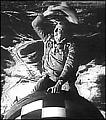...Although HUMINT-centric operations and IO may appear distinctly different in terms of their aims, they are closely linked; in fact, they are mutually supportive. HUMINT-centric operations target the insurgent and the terrorist, but in doing so they produce precise and timely information that allows our Soldiers to locate and attack insurgent forces with surgical precision, minimum violence, and minor collateral damage. A corollary benefit is that our actions result in minimal harm and inconvenience to the local population, helping us to convince them that we have the intent and capacity to improve their security and daily lives by eliminating the insurgent threat.
Likewise, IO synergistically supports our intelligence efforts by convincing the local population that it is in their best interest, personally and nationally, to tolerate and even support our efforts to improve their lives. Through IO, we share with the population the progress that is being achieved politically, economically, and socially, and we ensure that they know about the violence and harm the insurgents are wreaking upon their fellow citizens and their nation.
Similarly, through IO we are able to let the population know that we can separate and protect them from insurgent-terrorist threats when they have the confidence to share targetable information with us. The more adept we become at conducting IO and influencing the population, the more information the population will provide to enable us to target the insurgents and terrorists. It’s a win-win dynamic....





 Reply With Quote
Reply With Quote




 .
.

 ).
).







Bookmarks